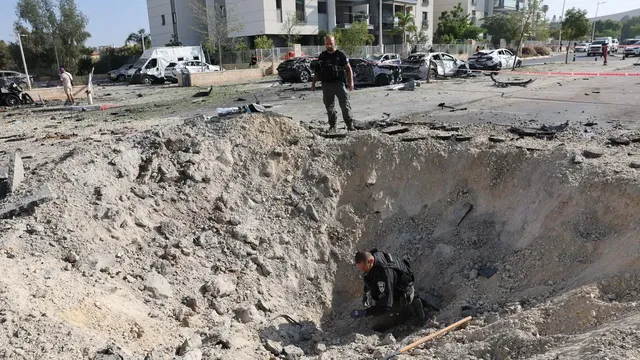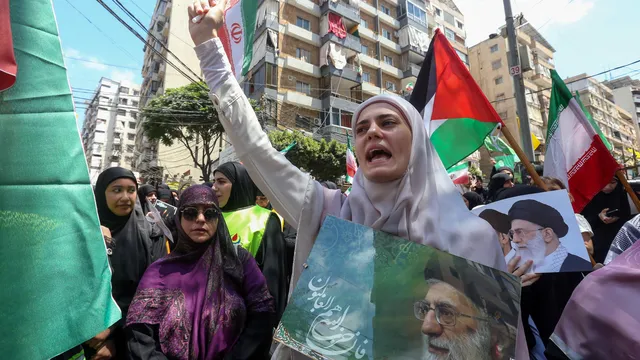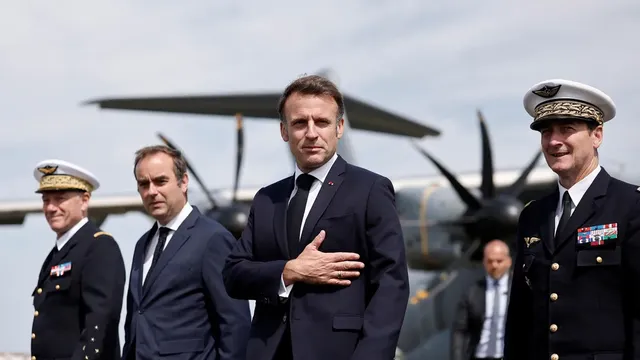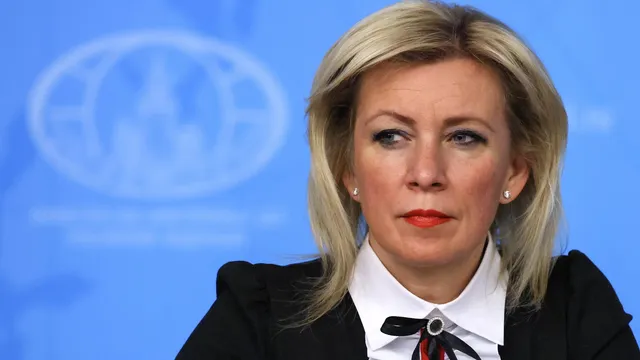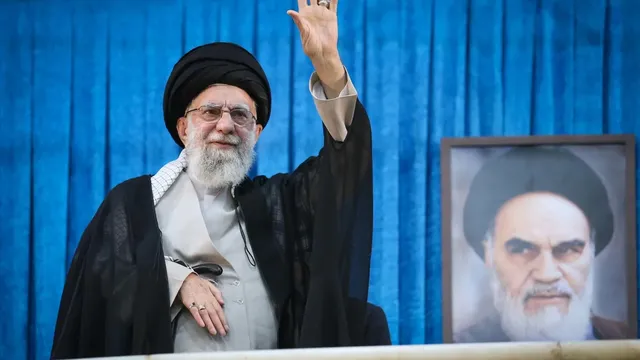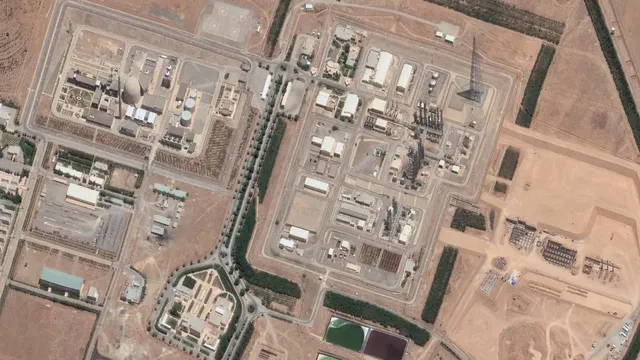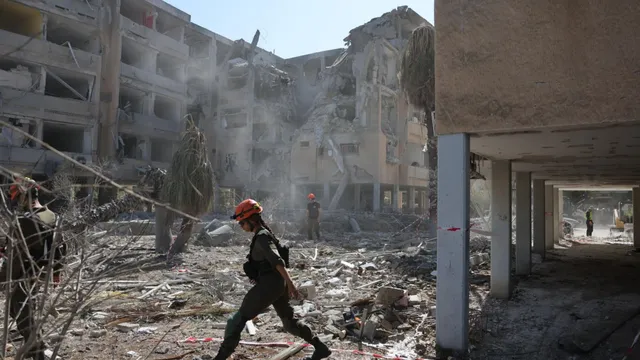Israel said on Saturday it had killed three Iranian commanders in an unprecedented bombing campaign against the Islamic Republic that Foreign Minister Gideon Saar said had already set back Tehran’s alleged nuclear plans by two years.
The Israeli military said fighter jets had killed a senior Iranian official, Saeed Izadi, who was responsible for coordinating with the Palestinian militant group Hamas, and announced the deaths of two other commanders from Iran’s Revolutionary Guard Corps.
The Israeli army said on Saturday it was carrying out strikes on “military infrastructure” in southwestern Iran, on the ninth day of the war triggered by Israel’s attack on the Islamic Republic. “Fighter jets are currently carrying out strikes on military infrastructure in southwestern Iran,” the military said in a statement.
As Israel continues to strike Iranian nuclear facilities and military targets, Israeli Foreign Minister Gideon Saar said in an interview that the military campaign has “already delayed by at least two or three years the possibility of having a nuclear bomb.” “We will do everything we can there to eliminate this threat,” Saar told the German newspaper Bild, insisting that the Israeli campaign will continue.
Israel said it had attacked Iran’s Isfahan nuclear facility for the second time after its air force said it had struck missile depots and launch sites in central Iran. The military later said it had also struck military infrastructure in southwestern Iran.
US President Donald Trump warned on Friday that Tehran had “at most” two weeks to avoid possible US air strikes as Washington considered whether to join Israel’s unprecedented bombing campaign.
Aggression Continues
Iranian Foreign Minister Abbas Araghchi arrived in Istanbul on Saturday for a meeting of the Organization of Islamic Cooperation to discuss the conflict. Top diplomats from Britain, France and Germany met with Araghchi in Geneva on Friday and urged him to resume talks with the United States, which have been stalled by Israel’s attacks. But Araghchi told NBC News after the meeting that “we are no longer prepared to negotiate with them (the United States) as long as the aggression continues.” Trump has dismissed European diplomatic efforts, telling reporters: “Iran does not want to talk to Europe. They want to talk to us. Europe is not going to be able to help with that.” Trump also said he was unlikely to ask Israel to stop its attacks in order to bring Iran back to the negotiating table.
Any U.S. involvement would likely involve powerful bunker-busting bombs, the likes of which no other country possesses, to destroy an underground uranium enrichment facility at Fordow.
French President Emmanuel Macron said on Saturday that France and its European partners would step up talks with Iran after more than a week of hostilities between the Islamic republic and Israel.
Macron said on Saturday that the talks would be stepped up in an effort to avoid a larger conflict. “I am convinced that there is a way to end the war and avoid even greater dangers,” Macron said after telephone talks with Iranian President Massoud Pezeshkian. “To achieve this, we will accelerate the negotiations led by France and its European partners with Iran.” Macron reiterated that “Iran must never acquire nuclear weapons. Iran must provide full guarantees that its intentions are peaceful,” he added.
The US-based Human Rights Activists News Agency said on Friday that, based on its sources and media reports, at least 657 people had been killed in Iran, including 263 civilians. Iran's Health Ministry said on Saturday that at least 350 people had been killed in the Israeli strikes, including military commanders, nuclear scientists and civilians. Nasrin, 39, who gave only her first name, said she was thrown across a room in her Tehran home by an Israeli strike. "I just hit the wall. I don't know how long I was unconscious. When I woke up, I was covered in blood from head to toe," she told AFP while receiving treatment at Hazrat Rasul Hospital in the Iranian capital.
Speculation
Traffic police and the Fars news agency reported traffic jams on roads leading to Tehran on Saturday, suggesting some residents were returning to the capital. Internet access remained highly unstable and limited in Tehran on Saturday, with slow connections and many websites still inaccessible, AFP journalists reported.
Iran's retaliatory strikes have killed at least 25 people in Israel, according to official figures. Overnight, Iran said it had targeted central Israel with drones and missiles. Israeli rescue workers said there were no casualties after an Iranian missile hit a residential building in the northern town of Beit Shean. Piles of dirt were dug up at the site of the strike and a wall of a ground-floor room was demolished. Israel's National Directorate of Public Diplomacy said more than 450 missiles had been fired at the country so far, along with about 400 drones.
The head of the International Atomic Energy Agency, Rafael Grossi, said Iran was the only non-nuclear-weapon state that could enrich uranium to 60 percent. But he added that there was no evidence that Tehran had all the components to create a functioning nuclear warhead. Grossi told CNN that it was "pure speculation" to say how long it would take Iran to develop weapons. | BGNES, AFP

 Breaking news
Breaking news
 Europe
Europe
 Bulgaria
Bulgaria
